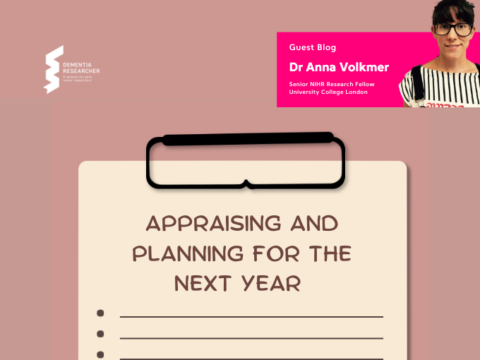Hi everyone and welcome back to my monthly blog, at the start of the pandemic I was sitting my final exams at the University of Glasgow and all classes and exams were moved online. Sitting at home rather than in my usual study spaces and having to learn in a completely new manner meant that I really struggled to study to the same standard I was used to and this continued when I started my MSc at UCL. I found it difficult to be stuck inside my room studying all day because I am so used to being on campus and moving from building to building with a different setting for each lecture.
I have now found a routine that really works for me and changes or is adaptable depending on the situation in regards to the pandemic. I use various different apps, technology and revision techniques to move past the difficulties in online learning that the pandemic has created but all of the new approaches that I have adopted are techniques that I will no doubt continue to use in the future as they are really effective.
The first thing I made sure to do was to set aside a space and corner of my room for studying. While I am privileged to have the space to do so and many will not, the idea was to separate studying space from living space. As a rule I do not study or do any uni work from my bed – even reading papers is banned in bed and only leisure reading is allowed. This is so that I can stick to a healthy sleeping pattern and can still relax in my bedroom and so that I don’t get too distracted while studying. It also helps to change up the study setting every now and then. If you are becoming distracted and losing focus, I find that moving to a different study space can help – for example booking a space in the library (if it is open) one day if I have spent a lot of time in my room recently. This helps me to remain focused and wasting less time means that I have more time for myself.
 I used to type all of my lecture notes because it was so much faster than writing and easier to search through the notes for various terms or information using the search bar. If you struggle to write up your notes in time and want a faster method of creating good quality notes, typing lecture notes is an ideal way to do this if you have access to a computer. It also makes it much easier to note down what the lecturer is saying without missing too much information. While this method really worked for me for a long time, I recently invested in a tablet and have found that it has made a massive difference in how I can study effectively. Tablets can be extremely expensive and are not accessible for everyone so I am in no way suggesting that they are necessary but the way in which I take my notes on my tablet is also possible using a laptop and print outs. I now write directly onto my lecture slides while watching a pre-recorded or live lecture. This means that I can annotate figures and tables, highlight key information and quickly add information to various areas on the slides without having to write out anything that is already on the PowerPoint. I used to struggle to stay focused during a lecture but writing directly onto slides and engaging with them on a deeper level means that I remain focused for the entire lecture without having to make a conscious effort to do so.
I used to type all of my lecture notes because it was so much faster than writing and easier to search through the notes for various terms or information using the search bar. If you struggle to write up your notes in time and want a faster method of creating good quality notes, typing lecture notes is an ideal way to do this if you have access to a computer. It also makes it much easier to note down what the lecturer is saying without missing too much information. While this method really worked for me for a long time, I recently invested in a tablet and have found that it has made a massive difference in how I can study effectively. Tablets can be extremely expensive and are not accessible for everyone so I am in no way suggesting that they are necessary but the way in which I take my notes on my tablet is also possible using a laptop and print outs. I now write directly onto my lecture slides while watching a pre-recorded or live lecture. This means that I can annotate figures and tables, highlight key information and quickly add information to various areas on the slides without having to write out anything that is already on the PowerPoint. I used to struggle to stay focused during a lecture but writing directly onto slides and engaging with them on a deeper level means that I remain focused for the entire lecture without having to make a conscious effort to do so.
One piece of advice that I was given at the start of my MSc by a brilliant lecturer was to come up with a few questions to ask at the end of the lecture or tutorial. He explained that At the beginning of my MSc, I was given a piece of advice by a brilliant lecturer that totally changed my experience of online lectures. He advised that after each lecture or tutorial, we should come up with few questions to ask. To be able to ask a question, you have to have paid attention to the material. I now try to come up with a few questions for each lecture to make sure that I pay attention to the content and actively try to understand it during the lecture. I wish I had heard this advice at a much earlier stage as it really does make a massive difference in engagement and therefore learning!
When I am revising material, trying to get through enough work each day and finishing various tasks on a to-do list, I use different apps to help me stay focused and as productive as possible. I use the pomodoro technique, which means I set 25 minutes aside for studying or working, with a 5 minute break each time. This can also be split into longer or shorter increments, depending on what suits your style of studying and your schedule. I use an app on my phone to stick to this which actually stops me from being able to use my phone during this time. The app that I use is called Forest, though there are many similar and equally useful apps out there, and it really gives me an incentive to stay focused and leave my phone to one side as that can often be a big distraction for me. This means that I waste less time during the day procrastinating. Similarly, I use an app on my laptop which blocks certain websites of my choice for periods of time of my choosing. I tend to block all social media and my emails if I am really trying to focus on the task at hand. Using apps like these and the pomodoro technique has totally revolutionised the way that I study and I am now so much more on top of my work than I used to be. I have found this particularly useful as when working from home in lockdown, it is far too easy to sit at a desk all day staring at the computer screen. I like to get my tasks for the day finished and give myself some time to relax as a reward for my hard work each day.
I know that everyone has different techniques and styles of studying that work for them, but if you have been struggling with losing focus and procrastinating during lockdown or are struggling to maintain a healthy work-life balance, these tips might help you and it could be worth giving them a shot.
I hope this helps and I’ll be back with another blog next month so stay tuned,
Morgan.
Author

Morgan Daniel
Morgan Daniel is an MSc Student at University College London, studying the along the ‘Dementia: Causes, Treatments and Research (Neuroscience)’ track, Originally from Loch Lomond, Morgan completed her BSc in Psychology and Neuroscience at the University of Glasgow in 2019, and she hates all forms of potato! Morgan is sharing her MSc journey during 2020 / 2021 with NIHR Dementia Researcher.

 Print This Post
Print This Post




